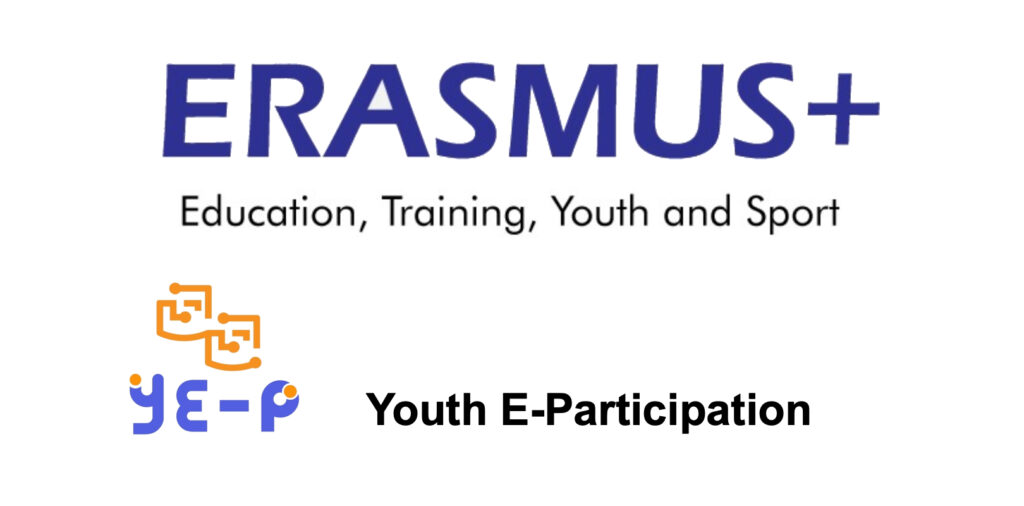
Youth E-Participation
Young people all over the world are becoming more connected, using the internet and digital tools to build communities, interact with others who share their interests, advocate, express resistance, organize events, and secure funding for causes they care about, claiming space and agency in their societies and adopting new forms of participation. At the same time, young people are underrepresented in formal political structures, with low rates of parliamentary membership, political party participation, electoral action, or engagement in conventional civil society organisations.
Younger generations throughout the world frequently feel disenfranchised and disillusioned with political systems that are unable to provide them with the chances and assistance they require. Additionally, European Citizen Action Service (ECAS) (2017) found that young people, the majority of them, are reluctant to use or understand engage in politics, exercise their democratic rights, and embrace the European brand. Some do not even participate in the decision-making process because of various challenges like not understanding how democracy and political structures work, they use different platforms to express different opinions and views, and they are selective listeners when it comes to various issues. However, there is a growing preference of communicating with decision-makers directly using social media or the internet, especially among young people.
Many young people prefer using digital spaces like Twitter, Instagram, and Facebook to debate and express their opinions on public issues. This signals a great potential to use social media platforms to get young people engaged and participate in political life. Therefore, e-participation was identified as the path to fostering active participation and empowering young people in democratic life. Youth E-participation helps to promote young people’s active engagement in decision-making and policy-making processes, but it additionally serves to explore their needs before making a choice. Young people may use this tool to help define priorities, communicate and decide with decision makers, express their opinions in an open dialogue process, and recommend initiatives that might improve and promote young people’s well-being on a local or national level. Its purpose is to encourage the participation of young people in policy-making processes and to increase their trust in decision-making mechanisms.
Therefore, one of the three main objectives of The EU Youth Strategy is to engage, by fostering young people’s participation in civic and democratic life.
E-participation describes the utilisation of ICT means and social media in order to further develop citizen participation in the information society. Especially, the youth is using their respective applications and platforms quite naturally for communication and interaction. The project is strengthening resources of young people for e-participation in the democratic life and fostering their involvement in policy-making through digital strategies and digital tools. Digital tools can foster interaction between citizens and enable citizen self-organisations. It can also reduce the costs for city government to crowdsource and consult citizens, can reduce barriers to participation, promote equality and inclusion, and can create direct connections between citizens and politicians and other policymakers.
Youth E-Participation strengthens the collaboration between government and citizens by facilitating wider public participation, the analysis of large amounts of information collected from citizens, and two-way communication between government and citizens. However, despite increasing investment in ICT, the technology has not been fully utilised by governments to enhance e-participation.
Overall objective of the project is the capacity of partner organisations and their members for e- participation in the democratic life and fostering their involvement in policy-making through digital strategies and digital tools.
Specific objectives:
SO1: To highlight the importance of youth e-participation and to equip participants with practical knowledge on the applicability, transferability and implementation of different digital solutions for youth e-participation in decision-making processes at the local level, regional, national and European level.
SO2: To explore digital tools that strengthen youth e-participation in decision-making processes at the local level, regional, national and European level and reflect on how to make them more youth-friendly and applicable to different realities
SO3: To enhance the capacity of Youth Workers and CSOs to support young people on using e-participation tools so as to better understand and contribute to participatory democracy processes in participating countries
SO4: To raise awareness and educate young people on e-participation and e-democracy concepts and raise the opportunities for e-participation for young people in local environments
SO5: Foster values and principles of youth e-participation by sharing their practices and experiences and strengthen transnational cooperation among youth
The project implementation period is 24 months (starting date 01/01/2023 – ending date 31/12/2024).
Role / Name of the organisation / Country / Region / Contact
COORDINATOR / IUVENTA/ SERBIA
PARTNER / E.M. BETTER WORLD FOUNDATION BWNGO / EGYPT
PARTNER / Planning and Development Agency PDA / LEBANON
PARTNER / TDM 2000 / ITALY
PARTNER / IDEI / ROMANIA
PARTNER / Farhat Hached Institute for Research and Democracy FHIRD / TUNISIA